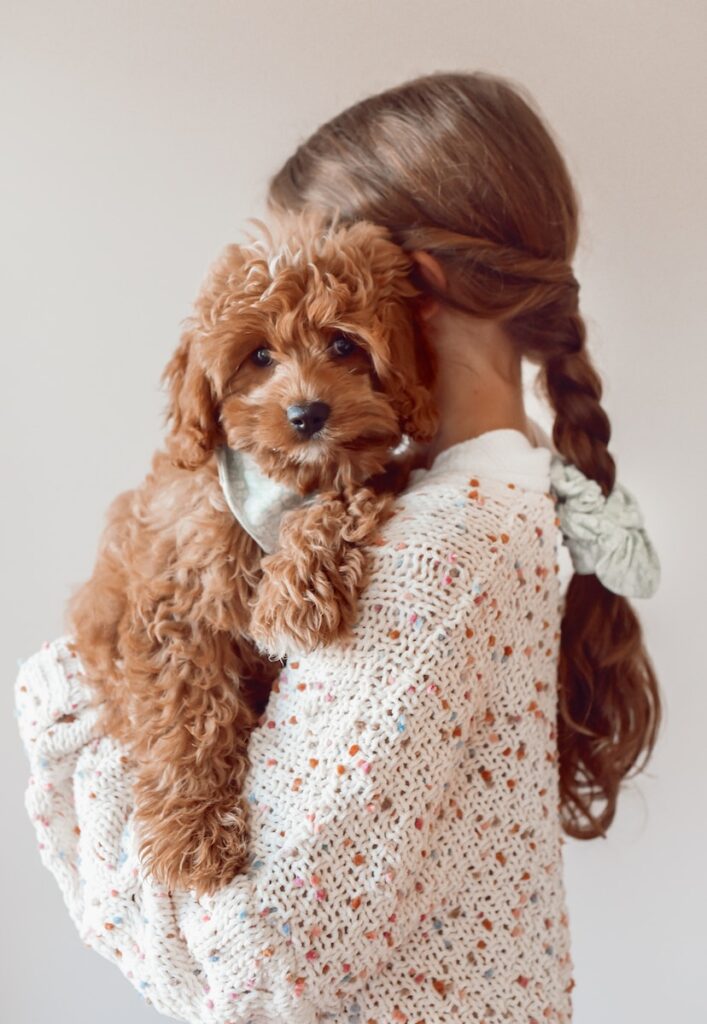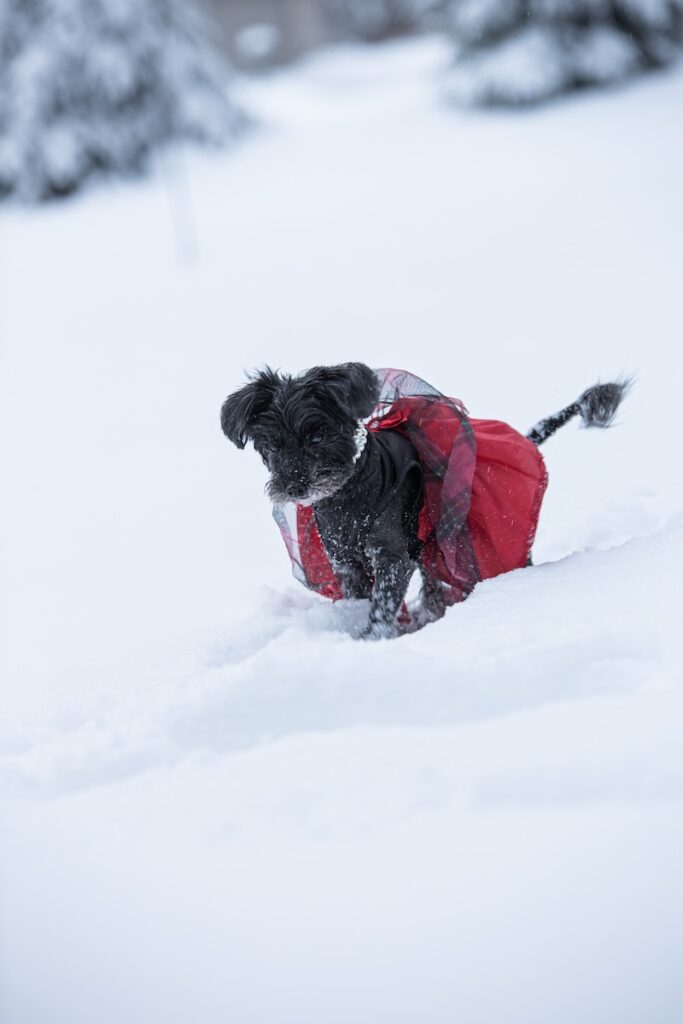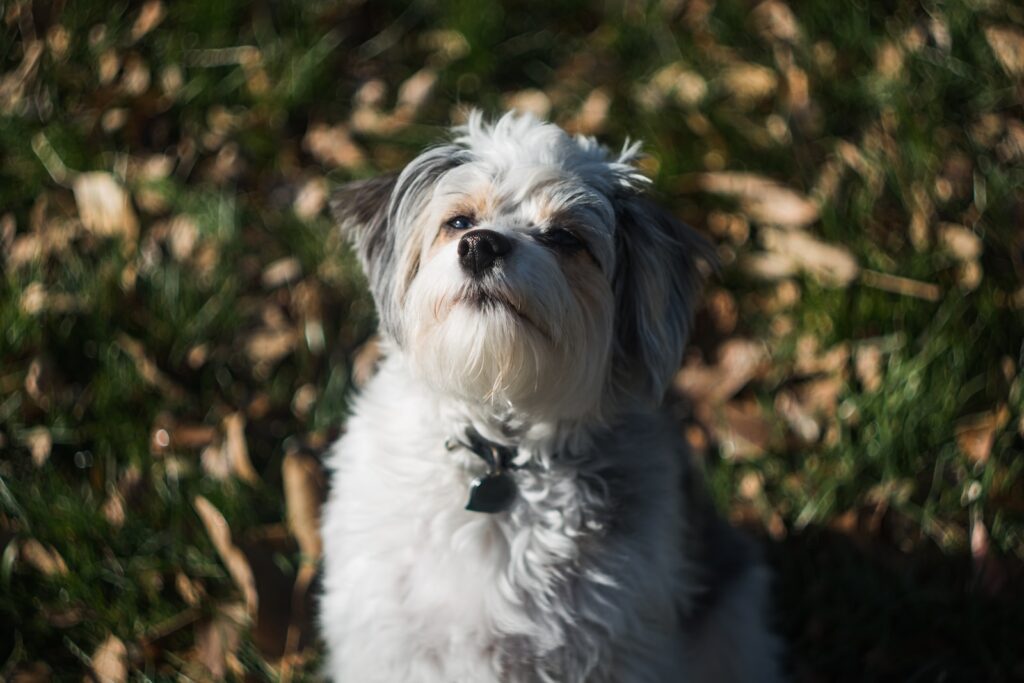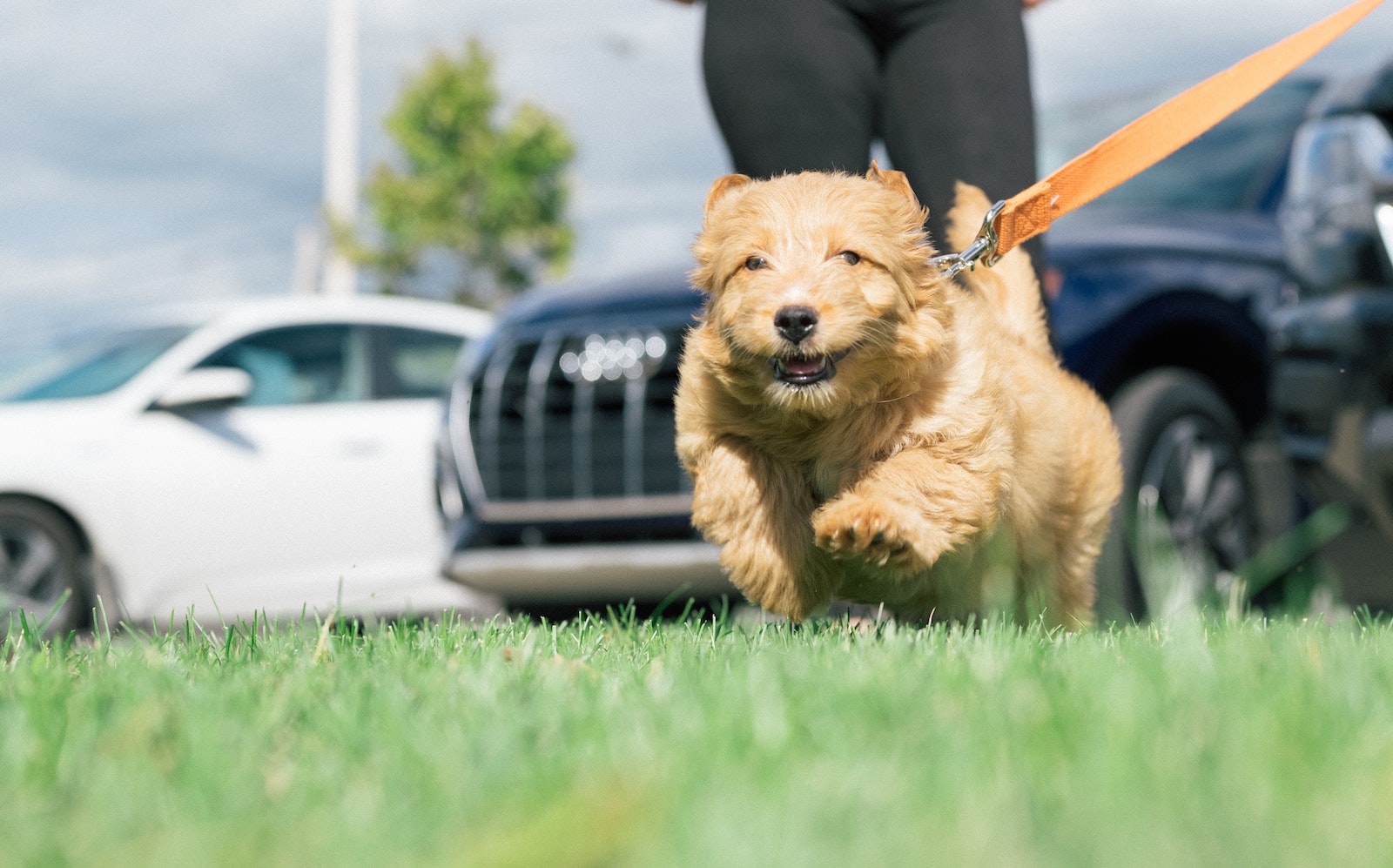What is a Doodle Dog? An Enlightening Brief Overview
Doodle dogs have taken the canine world by storm, and it’s not hard to see why. These adorable, fluffy companions are a mix of a Poodle and another dog breed, resulting in a variety of Doodle types. From the popular Goldendoodle and Labradoodle to the charming Bernedoodle, there’s a Doodle for everyone. But what exactly is a Doodle dog, and what makes them so special?

Table of Contents
According to WeLoveDoodles, a Doodle dog is essentially a crossbreed that includes a Poodle as one of the parent breeds. The Poodle’s intelligence and hypoallergenic coat make it a popular choice for crossbreeding. Doodles inherit these traits to varying degrees, making them smart, trainable, and often more suitable for people with allergies.
If you're considering getting a Doodle dog, start by researching the specific Doodle mix that aligns with your lifestyle and needs. Each Doodle type has its unique characteristics, so knowing what you're getting into is crucial.
Subtypes of Doodle Dogs
When people think of Doodle dogs, the first breeds that often come to mind are the Goldendoodle and Labradoodle. These popular mixes have garnered a lot of attention for their friendly nature, intelligence, and hypoallergenic coats. However, the world of Doodle dogs is far more diverse and fascinating than just these two types. One such intriguing breed is the Double Doodle, a unique mix that combines the best traits of two different Doodle breeds.
Double Doodles are a cross between two Doodle breeds, such as a Goldendoodle and a Labradoodle. This results in a dog that inherits a mix of characteristics from both parent breeds. Double Doodles are known for their friendly and social nature, making them excellent companions for families, singles, and seniors alike. They are also known for their minimal shedding, which is a significant advantage for those who suffer from allergies.
But the Double Doodle is just the tip of the iceberg. There are several other lesser-known Doodle breeds that are worth exploring:
Schnoodle
A cross between a Schnauzer and a Poodle, the Schnoodle is known for its intelligence and versatility. They are excellent family pets and can adapt well to various living conditions.
Yorkipoo
This adorable mix between a Yorkshire Terrier and a Poodle is a small dog with a big personality. They are energetic, affectionate, and make excellent companions for those living in apartments.

Cockapoo
One of the oldest known Doodle breeds, the Cockapoo is a mix between a Cocker Spaniel and a Poodle. They are known for their friendly and outgoing nature, making them excellent family pets.

Sheepadoodle
A cross between an Old English Sheepdog and a Poodle, the Sheepadoodle is known for its playful and loving nature. They are excellent with children and other pets, making them a great choice for families.

Aussiedoodle
This Doodle mix combines the intelligence of the Australian Shepherd with the hypoallergenic coat of the Poodle. They are energetic, intelligent, and require a lot of mental and physical stimulation.

If you're looking to bring a Doodle into your life but want something a bit different, don't limit yourself to just the popular breeds. Explore the world of lesser-known Doodle mixes to find a pet that perfectly matches your lifestyle and needs. Whether you're looking for a small lap dog like the Yorkipoo or an energetic and intelligent companion like the Aussiedoodle, there's a Doodle out there for everyone.
The Reality of Owning a Doodle Dog
Owning a Doodle dog can be a rewarding experience, but it’s essential to separate fact from fiction. A study from NCBI reveals that while Doodle owners report high satisfaction, there are also misconceptions about their health and suitability for children. For instance, some people believe Doodles are entirely hypoallergenic and don’t require much grooming, which is not always the case.
Before bringing a Doodle into your home, make sure you're well-informed about the breed's specific needs and characteristics. Consult reliable sources and consider speaking with current Doodle owners for firsthand insights.
Doodle Dogs and Families: A Great Match?
Doodle dogs have gained a reputation for being excellent family pets, and many families are eager to bring one into their homes. But is this reputation well-deserved? The answer is a bit more nuanced than a simple yes or no. While Doodles are generally known for their friendly and loving nature, there are several factors to consider to determine if they are the right fit for your family.
According to Happy-Go-Doodle, the F2B Goldendoodle is especially well-suited for families. This particular Doodle breed is a second-generation backcross, meaning it has more Poodle genes, which often results in a more hypoallergenic coat and a calmer temperament. These traits make the F2B Goldendoodle an excellent choice for families with allergy concerns or those who prefer a dog with a more predictable disposition.
Rover also supports the idea that Doodles make great family pets. They highlight the breed’s moderate activity level, which means they are energetic enough to keep up with active children but not so hyperactive that they become overwhelming. This balance makes them a good fit for families who enjoy outdoor activities but also appreciate downtime at home.
Compatibility with Children
One of the most significant selling points for Doodles as family pets is their compatibility with children. Doodles are generally patient and gentle, making them excellent companions for kids of all ages. However, like any dog breed, early socialization is crucial to ensure that your Doodle grows up to be well-behaved around children.
Compatibility with Other Pets
If you already have other pets at home, you’ll be pleased to know that Doodles generally get along well with other animals. Whether you have another dog, a cat, or even smaller pets like rabbits and guinea pigs, a well-socialized Doodle is likely to be a friendly and respectful companion to them.
Considerations for Families with Special Needs
Doodles are also increasingly being used as therapy and service dogs, thanks to their intelligence and trainable nature. If your family has special needs, a Doodle could be trained to provide emotional support or even specific services.
If you're considering adding a Doodle dog to your family, take the time to assess your family's lifestyle, needs, and preferences. Make sure to consider the breed's exercise needs, temperament, and compatibility with children and other pets. If possible, spend some time with a Doodle to see if it's the right fit for your family dynamics.
Doodle Dogs and Exercise
Exercise is a crucial aspect of dog ownership, and Doodle dogs are no exception to this rule. While they may not be as high-energy as some working breeds, Doodles still require a consistent and varied exercise regimen to keep them physically and mentally stimulated. According to DogTime, Goldendoodles, a popular Doodle breed, need regular exercise to maintain their health and happiness. But what does “regular exercise” mean, and how can you ensure your Doodle is getting the physical activity they need?
Types of Exercise Suitable for Doodles
Doodles are versatile dogs that can enjoy a range of physical activities. Here are some types of exercise that are generally well-suited for Doodles:
- Walks: A daily walk is the bare minimum for most Doodles. It’s a great way for them to explore their environment and expend some energy.
- Fetch and Playtime: Games like fetch or tug-of-war can be played in your backyard or a nearby park. These games are excellent for quick bursts of high-intensity exercise.
- Hiking: If you’re an outdoor enthusiast, your Doodle will likely enjoy hiking. It’s a fantastic way for both of you to get exercise and enjoy nature.
- Agility Training: Doodles are intelligent and agile, making them excellent candidates for agility training. This can be a fun and challenging way to exercise your dog.
- Swimming: Many Doodles love water, and swimming is a great low-impact exercise, especially for older dogs or those with joint issues.
Exercise Needs by Age and Health
- Puppies: Doodle puppies are bundles of energy but remember that their joints are still developing. Short, frequent bouts of exercise are better than long, strenuous activities.
- Adults: Adult Doodles require consistent exercise. A combination of walks, playtime, and other activities is ideal.
- Seniors: Older Doodles may slow down but still require regular exercise. Low-impact activities like swimming or leisurely walks are best for them.
Mental Exercise
Physical exercise is essential, but Doodles also need mental stimulation. Puzzle toys, obedience training, and even simple games like “find the treat” can keep your Doodle mentally engaged.
To ensure your Doodle gets the right amount of exercise, create a weekly exercise schedule that includes a mix of physical and mental activities. Adjust the plan as needed based on your dog's age, health, and energy levels. Regular vet check-ups can also provide insights into whether your exercise routine is meeting your Doodle's needs.
Grooming Your Doodle Dog
One of the most captivating features of a Doodle dog is undoubtedly its unique and often luxurious coat. Whether your Doodle has a wavy, curly, or fleece-like coat, it’s one of the breed’s defining characteristics. However, this beautiful feature also comes with its own set of grooming challenges. While Doodles are often celebrated for their low-shedding qualities, this doesn’t mean they are low-maintenance when it comes to grooming. In fact, their coats require regular and sometimes intensive care to keep them looking and feeling their best.
Understanding Your Doodle’s Coat Type
Doodle coats can vary widely, even within the same litter. Generally, there are three main types of Doodle coats:
- Curly: Resembles the Poodle’s coat and is more likely to be hypoallergenic.
- Wavy: A mix between the Poodle’s curls and the other parent breed’s coat. It’s often the easiest to manage.
- Straight: More similar to the non-Poodle parent and may shed more than the other types.
Understanding your Doodle’s coat type can help you tailor your grooming routine to their specific needs.
Essential Grooming Tools
To keep your Doodle’s coat in top condition, you’ll need some essential grooming tools:
- Slicker Brush: For removing tangles and loose fur.
- Comb: For finer grooming and getting to hard-to-reach areas.
- Dog Shampoo and Conditioner: Preferably hypoallergenic and suited for your Doodle’s coat type.
- Nail Clippers: Doodles need regular nail trims, just like any other breed.
- Ear Cleaning Solution: To keep their floppy ears clean and infection-free.
Regular Brushing is Key
Regular brushing is crucial for preventing mats and tangles, which can be painful for your dog and difficult to remove. How often you should brush your Doodle depends on their coat type:
- Curly Coats: At least every other day.
- Wavy Coats: Two to three times a week.
- Straight Coats: Once a week should suffice.
Professional Grooming
While regular at-home grooming is essential, most Doodles will also benefit from professional grooming every 6-8 weeks. Professional groomers can provide services that are difficult to do at home, such as thorough baths, haircuts, and even anal gland expression.
Start a regular grooming routine as early as possible in your Doodle's life to get them accustomed to the process. Keep a grooming kit with all the essential tools and set reminders for regular professional grooming appointments. This will not only keep your Doodle looking great but also contribute to their overall health and well-being.
FAQs
Do Doodle Dogs Shed?
While Doodles are often considered low-shedding, it’s essential to note that no dog is entirely hypoallergenic. The amount of shedding can vary depending on the specific Doodle mix and even from one dog to another within the same breed.
Are Doodle Dogs Hypoallergenic?
The term “hypoallergenic” can be misleading. While Doodles are generally better for people with allergies compared to other breeds, it’s always best to spend time with the breed before making a decision.
How to Train a Doodle Puppy?
Doodles are known for their intelligence and eagerness to please, making them relatively easy to train. Positive reinforcement techniques work best for this breed.
If you have specific questions about Doodle dogs, consult with a veterinarian or a canine behaviorist who has experience with the breed. They can provide tailored advice that addresses your concerns.
Conclusion
Doodle dogs are more than just a passing trend; they’ve captured the hearts of dog lovers everywhere for good reasons. From their adorable appearance to their friendly and intelligent nature, Doodles make wonderful companions. However, like any pet, they come with responsibilities. Whether it’s understanding their exercise needs, grooming requirements, or suitability for your family, being well-informed is key to a happy life with your Doodle dog.
Before making the final decision to bring a Doodle into your life, make a checklist of the breed's needs and your capabilities. Ensure that you can meet those needs to make the most of your life with your new furry friend.

